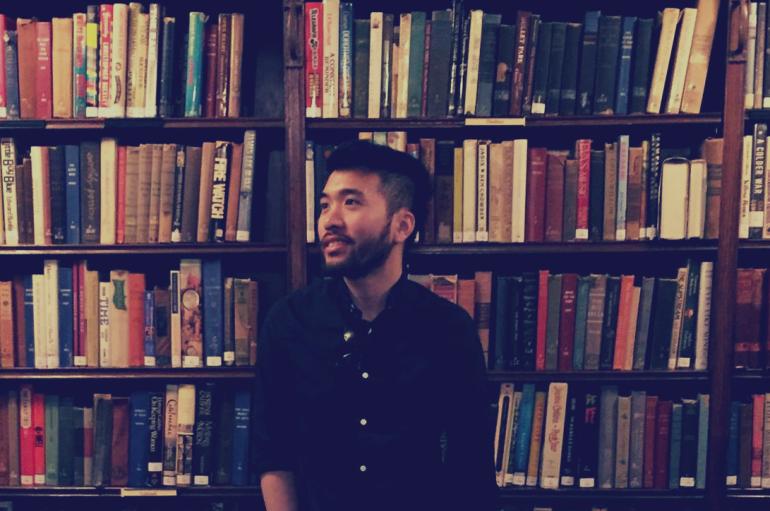
The Department is thrilled to share that composer Baldwin Giang is the recipient of the Samuel Barber Rome Prize, as recently announced by the American Academy in Rome. These highly competitive fellowships support advanced independent work and research in the arts and humanities. This year, the gift of “time and space to think and work” was awarded to 36 American artists and scholars. They will each receive a stipend, workspace, and room and board at the Academy’s eleven-acre campus in Rome, starting in September 2023.
Two annual Rome Prize Fellowships in musical composition are offered—the Frederic A. Juilliard/Walter Damrosch Rome Prize and the Samuel Barber Rome Prize—and an annual residency (the Paul Fromm Composer in Residence). Composers also participate in the Visiting Artists and Scholars Program.
Read about Baldwin's project, titled Transnational queerness: Three compositions reflecting on city life, queerness, and romance, and plans for his time in Rome.
During my time at the American Academy in Rome, I plan to compose three major works. The first is a commission from New York-based Loadbang. The second project is a commission from Brussels-based Extended Music Collective, for harp, cello, and electronics inspired by the architecture and rich history of the Basilica San Clemente in Rome. The Basilica San Clemente is a multi-layered complex comprising (1) the home of a Roman nobleman built on the foundations of a warehouse, (2) a 4th-century basilica, and (3) the present-day basilica built in the Middle Ages. Beneath the church are Christian, Jewish, and pagan catacombs. The Basilica San Clemente also features prominently in Andre Aciman’s queer-classic Call me by your name, wherein the sedimented history of the church represents Elio’s understanding of desire. On the same night that they visit the basilica, Elio and Oliver make love for the last time. Elio later remarks how every new relationship in his life is in some way built on this foundational memory with Oliver, just like “the church is built on the ruins of subsequent restorations…just layers and secret passageways and interlocking chambers.”
My music for Extended Music Collective will ponder this “archeological” understanding of desire by featuring, in the electronics, several layers of recordings superimposed on the acoustic harp and cello. I propose also to spend several days in the Basilica San Clemente, studying how its many layers interact with each other to generate new approaches to form and the handling of musical material.
The third project is the continuation of a set of microtonal indie-pop songs that reflect on city life, queerness, and young romance. I have been writing the lyrics in collaboration with Chicago-based trans poet Smith Yarberry. My goal is for the finished work to feel equally at home both on the new music concert stage as well as a venue like NPR’s Tiny Desk Concerts. In Rome, I plan to meet members of the local queer community and write lyrics and music inspired by the intersection of the unique city life, queerness, and historical and contemporary experiences of young romance from a Roman perspective. I would also love to meet with contemporary poets based in Rome and collaborate with them on lyrics for the remaining songs.
"Baldwin's musical work marries an adventurous mind with incredibly tight craft. Within the diverse landscape of beauty that constitutes his compositions, one can find a mastery of instrumental color, daring experimentation with new multimedia forms, skillful counterpoint, and poignant political commentary. Like the namesake of his Rome Prize, Samuel Barber, Baldwin's music is movingly lyrical and harmonically driven," said University Professor Augusta Read Thomas. "Coming to us with a humanities background from Yale University, Baldwin has been a model citizen of our department and community, and in the UChicago spirit, weaves his broad intellectual interests with his artistic oeuvre. It has been a pleasure to work with Baldwin as his PhD dissertation advisor, and we are incredibly proud of his accomplishment as a Rome Prize fellow."
Rome Prize winners are selected annually by independent juries of distinguished artists and scholars through a highly competitive national competition. The eleven disciplines supported by the Academy are ancient studies, architecture, design, historic preservation and conservation, landscape architecture, literature, medieval studies, modern Italian studies, music composition, Renaissance and early modern studies, and visual arts.
Read the announcement from the American Academy in Rome, including the full list of prizewinners.
